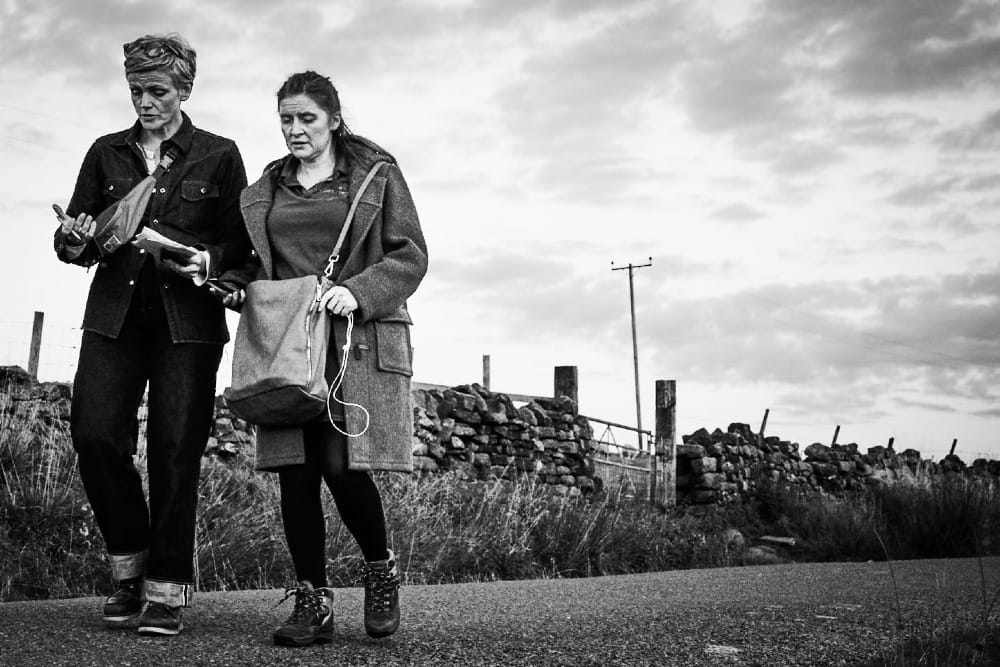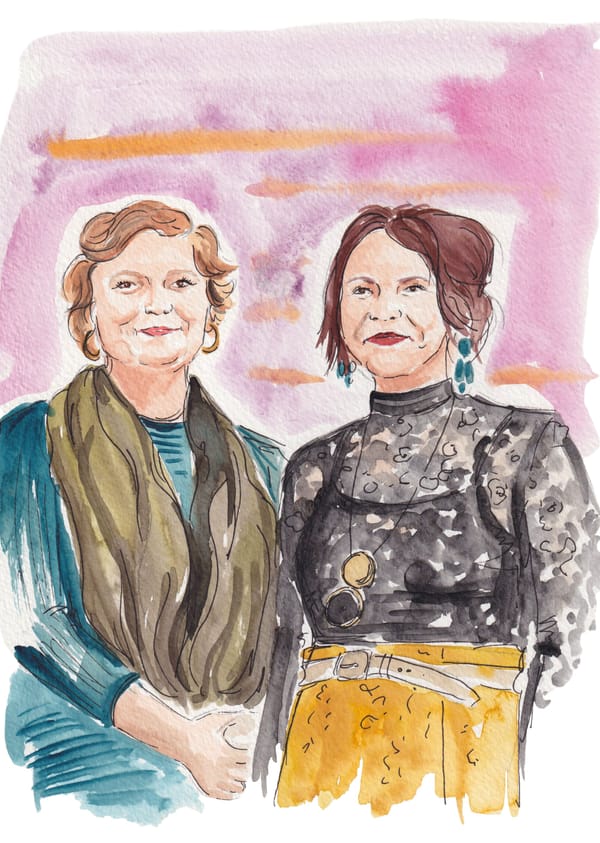'Now It's Over, I Don't Feel Any Better At All’
The short film, “Incompatible,” tells the story of a pregnant-working class woman making an all-but-impossible choice.

The Persistent is available as a newsletter. Sign up here to get it delivered to your inbox.
Hayley Standing had been trying for a baby for more than two years when she finally became pregnant. But at her 12-week ultrasound, she learned that her baby had a severe genetic disorder—Trisomy 18 or Edwards Syndrome—which would make her baby girl “incompatible with life,” according to the doctor.
Standing faced a choice: allow the pregnancy to continue to term and know that the baby would almost certainly die, or undergo a surgical termination before 15 weeks. Both options felt devastating. She chose the latter.
Four years—and a healthy pair of IVF twins—later, Standing, who is an actor and screenwriter, was finally able to start processing the experience.
As part of that process, she wrote a short fictional screenplay, which closely mirrors her own experiences. That screenplay would eventually become “Incompatible,” a 15-minute film in which we watch Annie, a woman in her 40s, wrestle with the heartache of discovering her baby is “incompatible with life.”
The film follows Annie’s pain as she makes her agonizing decision between the instinct to protect her baby at all costs, and a desire to end her suffering. It’s a surprisingly common dilemma. In Scotland, Wales and England, where Standing lives, more than 3,600 pregnancies were terminated because of fetal anomaly in 2022—more than the number of stillbirths and neonatal deaths. The emotions felt by those going through it can be complex. “I felt I wasn't allowed to be upset because I'd chosen a termination,” Standing says.
"Everyone thinks that times have moved forward so much, that it is so different now. But it isn't. Because we still can't be who we want to be without feeling judged."
Standing asked Maxine Peake to direct the film. Peake, an actor, has thrice been nominated for BAFTAs—the U.K.’s version of the Oscars—and is best known for her appearances in classic British shows like Dinnerladies, Silk, and Inside No. 9. Starring in the main role? Standing, of course. “She was the best person” for the part, says Peake. But “knowing that this was so personal, I wanted to protect Hayley as well.”
Peake has also had her own share of fertility challenges. After one miscarriage and three unsuccessful rounds of IVF, she stopped treatment. “I decided to call it a day,” she says, because “I found [fertility treatment] quite traumatizing.” But she says it’s important to keep telling stories about infertility. “It's about telling more female stories,” she says.
Standing and Peake also share a similar British northern, working-class upbringing, which is reflected in the film. It’s shot on the Yorkshire moors, a few miles from where the Brontë sisters (and their brother) grew up. It’s very bleak. There are blustery, heather-topped crags. This is real Heathcliff country.
I sat down with Standing and Peake to talk about "Incompatible," the importance of telling working class stories, and why their film isn’t being shown at U.S. film festivals.
The conversation has been edited for length and clarity.





